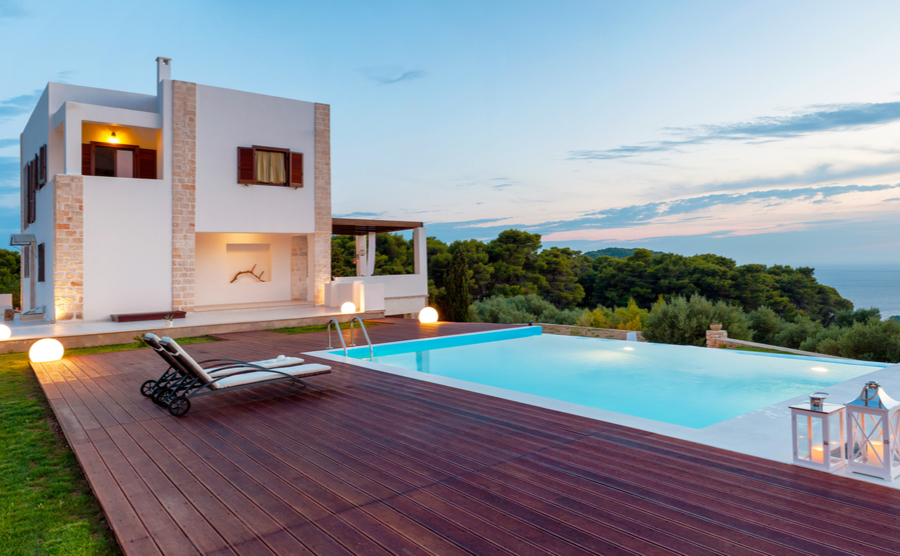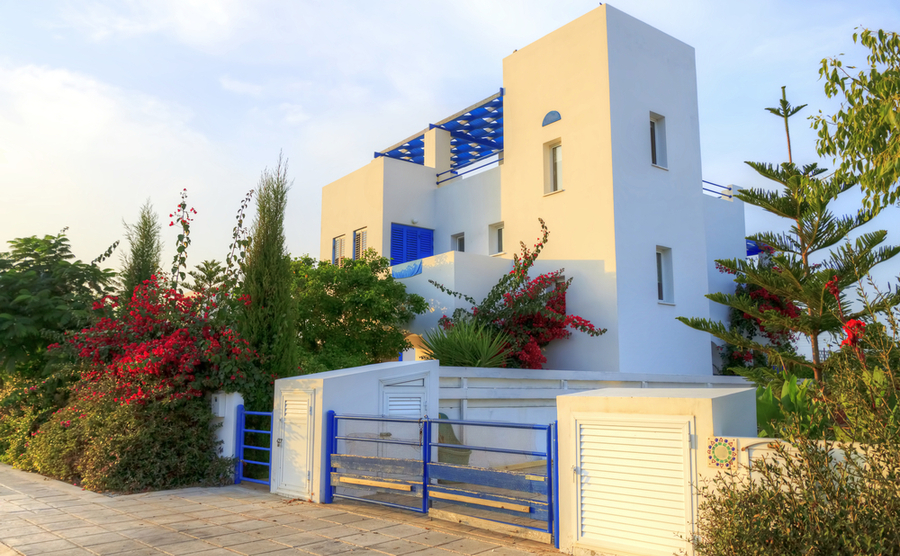Your property: your golden visa
Location, location, location – the perennial priority for anyone searching for their perfect home, luxury or otherwise. For some, this will mean picking the right country, one where investing in property can be a ticket to financial and residency benefits.
This is thanks to a number of countries offering investment migration schemes, often referred to as ‘golden visas’, which automatically grant residency or citizenship to foreign citizens who make a qualifying investment.
These types of schemes are especially attractive to non-European citizens who wish to gain a foothold in an EU country and benefit from long-term wealth protection, borderless travel, a better lifestyle for their family and, where applicable, low taxation.

A luxury home and a safe investment too
These schemes could become equally valuable to UK nationals after the Brexit transition period. As things stand, at the end of 2020 UK nationals will lose their automatic right to freedom of movement and assume the same status as third-country nationals wishing to reside in the European Union. This could mean the fastest and easiest way to gaining residency there could be via a country’s investment migration scheme.
Why invest in a migration scheme?
Ultimately, countries offer migration schemes to attract foreign investment to their shores, thereby driving economic growth and enriching their nation’s pool of entrepreneurs and businesses. This means no two schemes are the same, with individual countries deciding on the finer details of what they are offering and setting their own eligibility criteria.
Whether you should consider investing in a scheme – and where you might end up doing so – will depend entirely on your personal circumstances and motives. There is no one-size-fits-all solution.
For third-country nationals, the benefits of an investment migration scheme in an EU country are multi-layered. Typically, a successful application brings an immediate right to legal residency status not only to the applicant but also their family, bringing with it all the lifestyle and security benefits. With EU residency comes the right to travel freely to any other European Schengen state, while after between five to ten years of continuous residency (depending on the country), you should be eligible to apply for citizenship.
On a financial level, having the right to reside somewhere means you then have the opportunity to become tax resident there – if it means you would pay less tax, then it may be an easy decision to make. This happens frequently in Portugal where getting residency through its Golden Visa scheme enables a non-EU citizen to also benefit from its Non-Habitual Resident (NHR) tax scheme, a highly favourable tax programme open to foreigners from anywhere in the world.
The flexibility of these schemes is part of their appeal. Usually, there is no requirement to live or even spend much time in the country where you have invested in a residency/citizenship. The important thing is that you have the option of moving, becoming tax resident and relocating assets there if you wish, no questions asked at any point in the future. This is a reassuring safety net if your assets are spread internationally.
Popular schemes
Investment migration schemes either offer residency or citizenship (which brings a second passport). In exchange, most require applicants to either make a large capital transfer or invest in one or a combination of the following: direct property purchase, existing businesses, new business which leads to job creation, research programme, private equity fund or government bonds.
In Europe, Portugal’s Golden Visa scheme is arguably the most popular residency-based option, thanks largely to its affordability and the fact it opens the door to the country’s NHR scheme. Applicants need to invest in a property equal in value or more than €500,000, but €350,000 if the property is in need in restoration. In addition, Golden Visa residents need only spend seven days in Portugal in the first year and 14 days in the subsequent years.
Greece also has a residency-based scheme, requiring an investment in property of just €250,000 and no physical residency. Similarly, the Malta Residence and Visa Program (MRVP) offers the option to invest in property of a minimum value €270,000 to €320,000 (depending on location). Malta has various residence programmes available to foreigners that could limit the tax you have to pay and protect certain assets from taxation.
Meanwhile, both Malta and Cyprus have citizenship based schemes, the former requiring circa €900,000 investment and the latter €2million.

A home in Cyprus, which has a successful golden visa scheme
“Cyprus is one of only three EU countries that offers both citizenship and fast track permanent residency in exchange for investment,” said Eleni Philippou, a managing partner at law firm Polycarpos Philippou & Associates L.L.C. “The Cypriot citizenship by investment scheme is comparatively the fastest, taking nine months, there are no language requirements and no actual residency requirement – only one visit every two years. The Cypriot passport grants visa free travel to more than 170 countries. On the other hand, the Cypriot fast track permanent residency scheme, known as PR, takes about four months and with a property purchase of €300,000 (plus VAT) the applicant, his children, his parents and even his in-laws obtain permanent residency.”
Speak to an expert
Key to considering any investment migration scheme, or Golden Visa, is to talk to a qualified expert. You should take advice not only from a financial advisor experienced in cross-border taxation, but also a lawyer that specialises in making investment migration applications in your chosen country.
Remember, the laws of most countries are increasingly complex and subject to continuous revision, as are the procedures for making a migration applications. Seeking advice early on will confirm how and where you can benefit most from a second residency or citizenship, while hiring the professional assistance during your application will significantly increase your chances of success.



